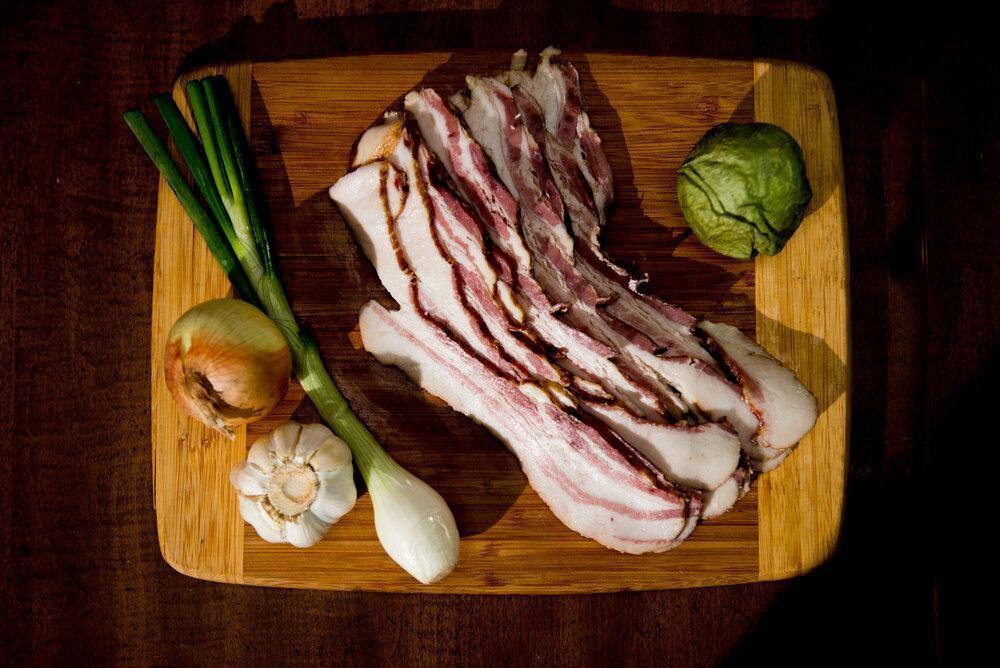
California passed a law in 2018 that added new requirements for pigs to be raised humanely, leading to breathtaking headlines with titles like "Is bacon really banned in California?" and "California's New Animal Welfare Law Could Mean the End of Bacon" as the law roles out in 2021. The law potentially reduces the percentage of pork that can be sold in California by 85% or more, and will raise the price of bacon, hams, and sausage by 50% or more. More expensive pork will affect everyone from restaurants to trips to the grocery store.
Side note: You can buy bacon that meets all of California's requirements here.
The Origins of the Law
In 2018, California voters passed a sweeping bill seeking to enhance animal welfare, designed to provide enough space for sows (pigs), veal, and egg-laying chickens, and to enhance their welfare. The law is well-intentioned, but will lead to a surprising result: most pigs today are not raised in conditions that meet the California Bill's requirements (including that pigs have 24 square feet of area to walk around in, 2 more feet than most existing industrial practices). While some farmers will retrofit, others won't bother.
Officials are split on the consequences of the new law, but everyone is in broad agreement that there will be short term pain as the costs of pork may 2x or more. Producers may adapt long term, for access to California (the world's 5th largest economy by GDP), but it is not as easy snapping their fingers: instead they likely will have to erect new confinements, adding costs in concrete, steel, and labor that their businesses may not be able to sustain.
What does this mean for Californians?
As the California Department of Food and Agriculture rolls out the law across California, bacon will get more expensive. Folks with less money will almost certainly be squeezed out of eating bacon and pork as often as they have in the past, a consequence projected to affect local cultures like the Chinese population in San Francisco, who have historically eaten a pork heavy diet. Restaurants and grocery stores will be forced to source for the 15% or so of farms that meet current reporting and space requirements. However, there are hundreds if not thousands of small, acreage style farms that do raise pigs outside or on pasture.
Alternatives
Pastured pork, and providers who comply with the law, will still be able to sell into California. Here at Acorn Bluff Farms, we sell bacon from Mangalitsa Pork, often called the best tasting pork in the world, where our average sow has 600 square feet of space, more than 20 TIMES California's requirements. Pigs outside are more expensive, as they are fed a less corn and grain-intensive diet.
Pastured or free-range pork comes from pigs that are raised outside, where they have room to root around, eating acorns, bugs, and other pests. Historically, pigs were raised on pasture. Confinement buildings lead to cheaper pork, and have served a growing nation well.
However, as sustainable practices improve, with practices like pasture rotation Joel Salatin-style, more pigs can be raised in a shorter amount of time. This leads to a more carbon-efficient pork lifecycle, and the pigs really enjoy wallowing in the mud. They typically do grow slower as well (which isn't a bad thing as it leads to better meat quality). Often, pigs that are raised outside come from heritage breeds that also have better flavor, like Mangalitsa, Berkshire, or Meishans.
If you're interested in pastured bacon, ham or pork chops that meet California's strict requirements, you can peruse our entire collection here. We raise our pork surrounded by oak trees and acorns on a small farm in Southeast Iowa, and ship all over the country, including California but also Texas, New York, and Illinois.
If bacon, specifically, is what you're after, we're shipping to California, and you can order here. Our bacon, breakfast sausage, and other items are perfect complements to pancakes, eggs, and other classic breakfast foods.
California's new law may help pigs live in more human environments. In the short term, it will certainly lead to more expensive pork, including bacon and other popular breakfast cuts. Long term, more and more pastured, heritage pork will move into the market to fill the gap, but it will take some time, and prices will likely always be more expensive than in most other states.
